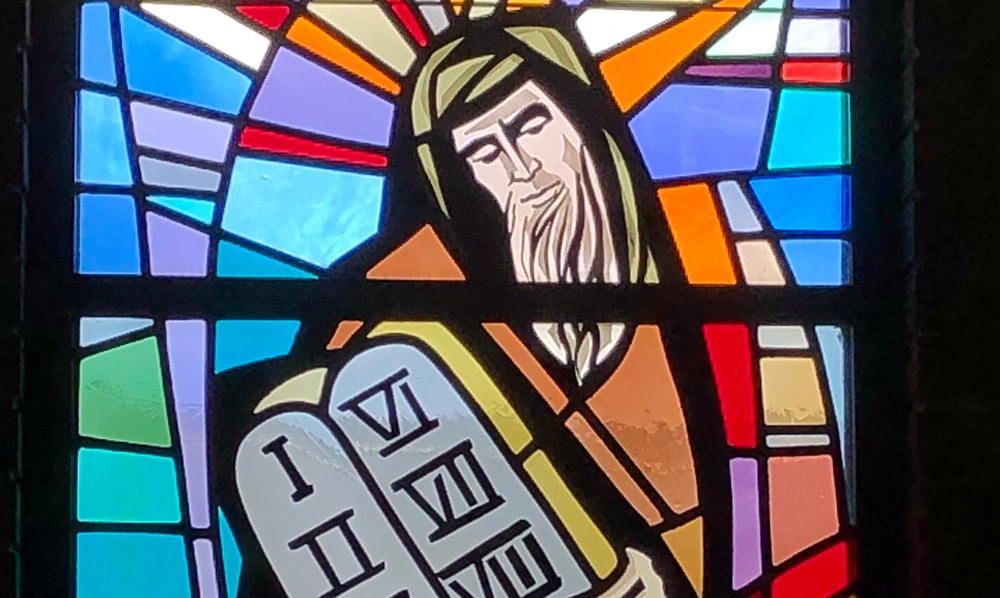
Israel’s view of the Law bestowed by God on Mount Sinai is not that of an average American. God’s law, as we hear in Sirach, is a matter of life and death. To keep the Law is to choose life, to deny the Law is to choose destruction.
The one who disobeys the Law is participating in the disorder of the world, the desecration of the goodness of creation given by God. Injustice is not a private affair but will elicit God’s judgment. It is death.
For this reason, the Law itself is an endless source of joy for Israel. The one who studies the Law enters (as far as human beings may) the mind of God, discovering the source of true happiness. The person appropriates this law, writing it upon the heart, coming to delight in its precepts.
The giving of alms, the protection of the widow and the orphan, avoiding adultery — all of it is a source of wisdom, bringing one toward salvation. Psalm 119 is the longest psalm, an acrostic with each section beginning with a Hebrew letter. The whole psalm is dedicated to a salutary meditation on the Law.
| Feb. 16 — Sixth Sunday in Ordinary Time |
|---|
|
Sir 15:15-20
Ps 119:1-2, 4-5, 17-18, 33-34
1 Cor 2:6-10
Mt 5:17-37
|
In the Sermon on the Mount in Matthew, Jesus announces that he has not come to void this law, to erase even a dot or a tittle. Obeying the commandments given by God is the way to enter the kingdom of heaven.
In fact, Jesus intensifies the Law, requiring that the fervent observer of the Law move beyond servile obedience toward the interior logic of love found within each dot and title of the Law.
It’s not enough to avoid murdering someone. One must stop being angry, learning to love one’s neighbor, seeking forgiveness before one approaches the altar.
It’s not enough to avoid adultery, the act of sexual infidelity. Lust itself is the source of adultery, and it must be rooted out. A bill of divorce may have been allowed because of the hardness of heart, but if one is to be a citizen of the kingdom of God, returning to God’s original plan for creation, one should avoid all divorce.
It’s not enough to avoid lying, giving a false oath. The sacredness of the divine name should not be used in such oaths since it trivializes what has been revealed by God. Say yes or no, avoid excessive claims and recognize the fragility of the human condition. Our knowledge of the world is not the same as God’s.
Jesus doesn’t erase the Law but extends its horizon, in a way that will challenge any disciple. What would it mean to become the kind of person who feels no anger, who is not disturbed by lust, who recognizes one’s fragility before God?
It would mean that one was pursuing holiness, allowing the foolish wisdom of God to shape our whole lives.
The interpretation of the Law provided by Jesus, in this sense, is not a checklist easily accomplished. It is a horizon of holiness given to the Church and each of her believers.
The disciple learns to love this horizon. And such love, as the Gospels show, comes to us as a gift, as divine grace.
Timothy P. O’Malley, Ph.D., is the director of education at the McGrath Institute for Church Life at the University of Notre Dame.





